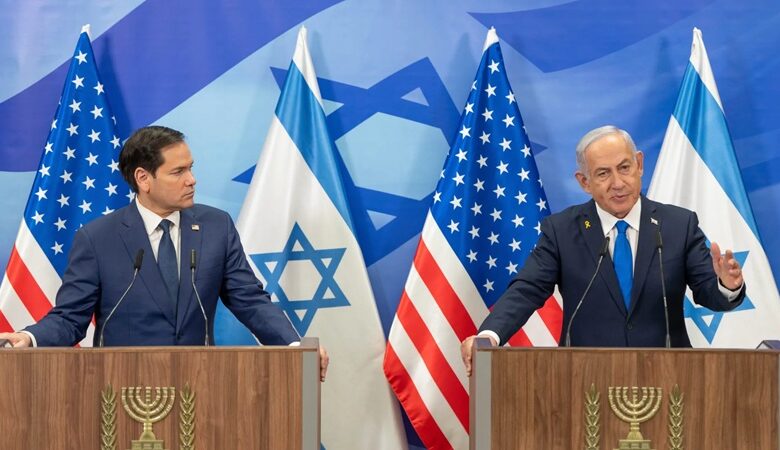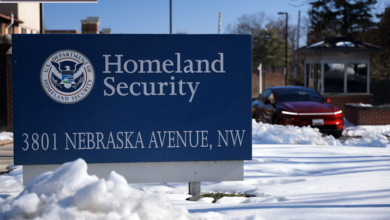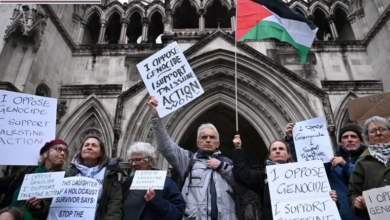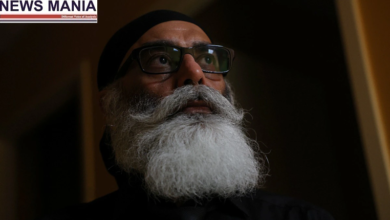Gaza ceasefire once again in doubt as first phase nears end
News Mania Desk / Piyal Chatterjee / 24th February 2025

As the initial phase of the ceasefire between Hamas and Israel in Gaza is expected to conclude, it has once more come into question. Once the final six Israeli hostages set to be released in this stage were freed, Israel was expected to release over 600 Palestinian prisoners in return – the largest number to be freed at once to date. However, that has now been postponed indefinitely by Israeli Prime Minister Benjamin Netanyahu, who insists that Hamas must cease what he referred to as its “cynical exploitation of hostages for propaganda ends.” Hamas has subsequently charged Israel with deliberately attempting to undermine the ceasefire agreement.
It’s the most recent significant obstacle aimed at ultimately achieving a lasting cessation of hostilities and initiating the reconstruction of Gaza. Israel expressed concerns over the tumultuous scenes during one of the initial handovers, stating that the physical safety of the hostages was endangered. Subsequently, Israel claimed that Hamas violated the agreement by failing to release a female civilian hostage, Arbel Yehud.
In reply, it postponed granting access for hundreds of thousands of Palestinians to head back to northern Gaza for 48 hours. That issue was settled when Arbel Yehud was released in an additional transfer prior to the next one planned for the upcoming Saturday. Hamas subsequently charged Israel with failing to fulfill its obligations to allow heavy machinery, tents, and caravans into Gaza. It then announced it would not proceed with the upcoming hostage transfer as planned. This led to warnings from both Netanyahu and US President Donald Trump that total warfare would restart in Gaza if the hostages were not released as promised. As time ran out, Hamas consented to free them.
In the last few days, it was found that the body Hamas returned on Thursday as belonging to Shiri Bibas actually was not hers. This triggered fresh outrage and disbelief in Israel, where the visuals of Shiri attempting to protect her two small children as they were taken on 7 October 2023, are regarded as the most powerful representation of the day’s terror.
Netanyahu criticized Hamas for what he termed a “brutal and wicked breach” of the agreement. Once more, the ceasefire was maintained at the very last moment as Hamas delivered another body within a day that, in fact, turned out to be hers. All these events have demonstrated how delicate the ceasefire process continues to be. They might have also played a role in the reason discussions on the second phase – which were supposed to begin earlier this month – have not yet commenced. Time is limited, as the initial phase is set to conclude in one week’s time.
Hamas has proposed to release the remaining hostages set for liberation in the second phase all at once, but this is contingent upon Israel withdrawing all its troops from Gaza and bringing a permanent conclusion to the conflict. Israel has insisted on the total disarmament of Hamas, which the militant group has thus far denied. The orchestrated events during each hostage exchange, which Netanyahu has vehemently criticized, aim to demonstrate that it remains a significant power in Gaza.
In Israel, right-wing voices are calling for the government to continue its fight against Hamas, while the families of the hostages—supported by many in Israel—stress that securing the release of the remaining hostages is the top priority above all else.
Arab nations are quickly working to formulate a solid alternative plan that allows Palestinians to remain in Gaza during its reconstruction, instead of being displaced from the area as proposed in Trump’s blueprint. The future administration of Gaza continues to be a major point of contention, as Israel, Hamas, the Palestinian Authority, and Arab nations all seem to have conflicting proposals.
These challenges will necessitate tough discussions, occurring in the ongoing threat of a resurgence of conflict, which some individuals on both sides still support. However, at this moment, the mediators from Egypt, Qatar, and the US might find it challenging to successfully implement the initial phase of the ceasefire.






